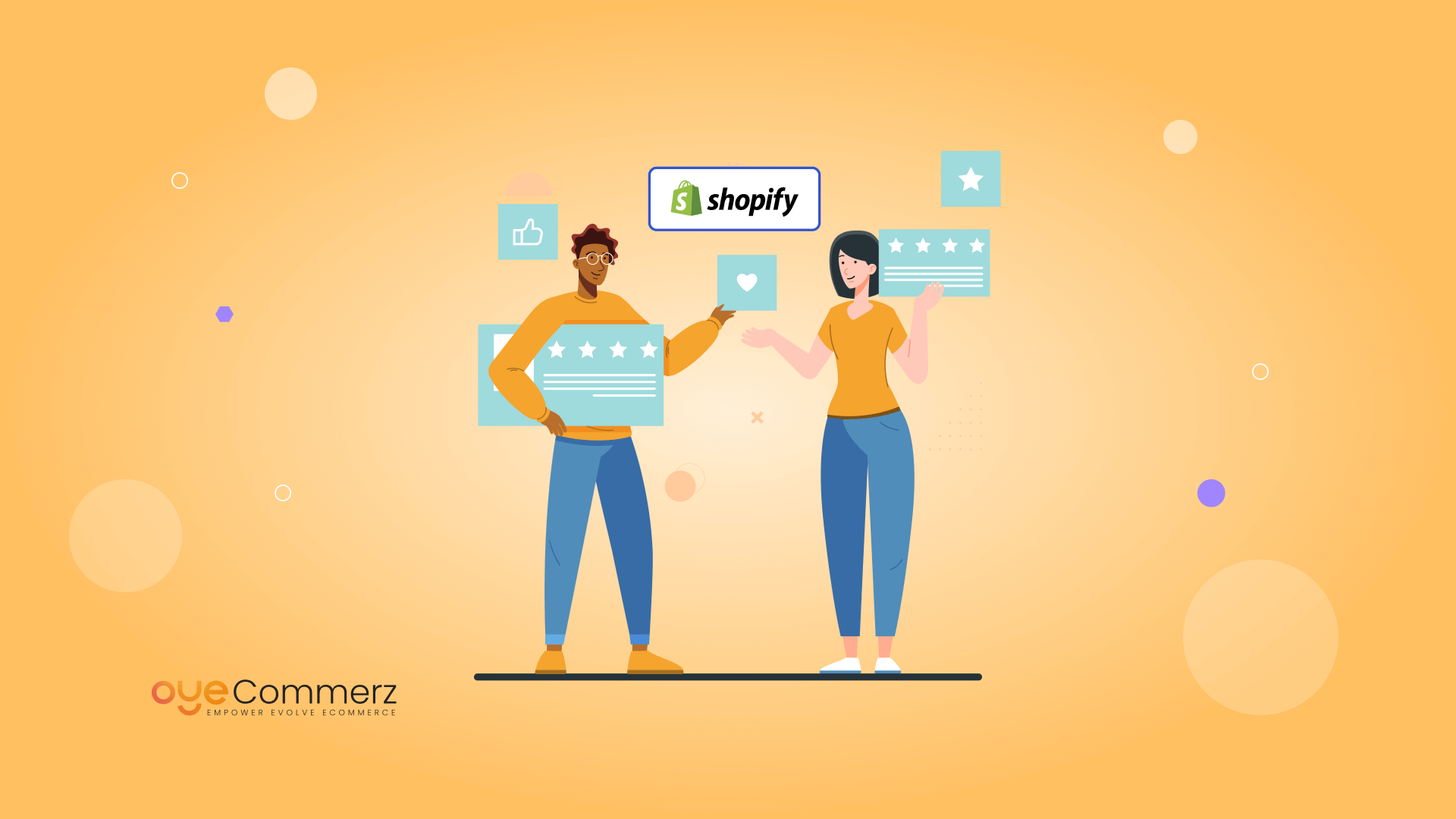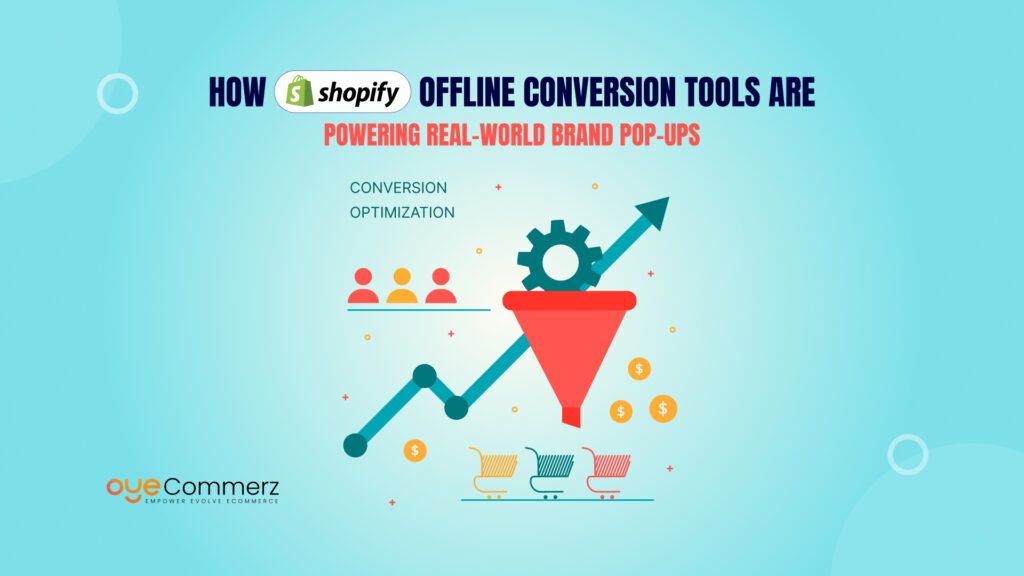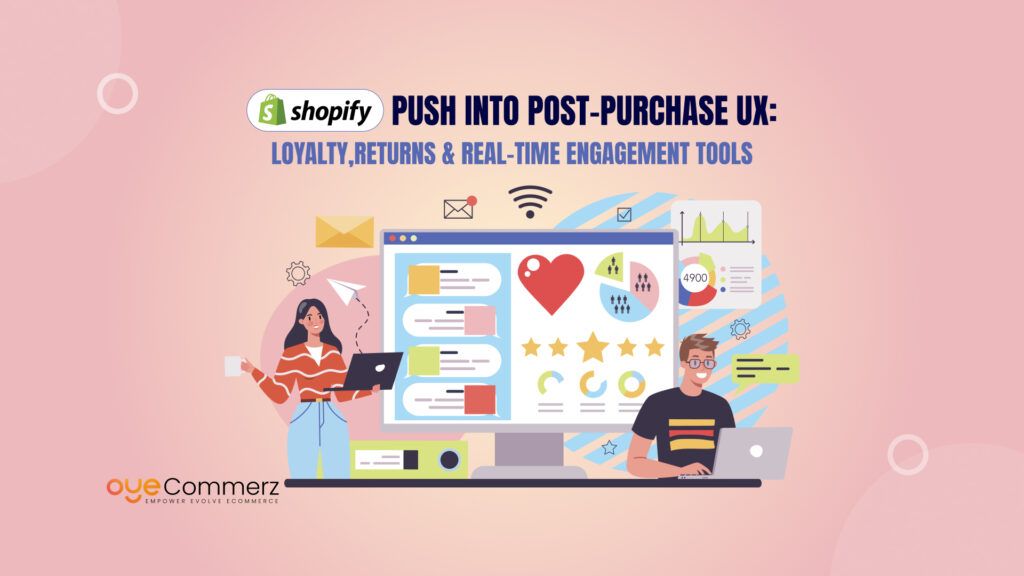Customer experience has become one of the most critical success factors in today’s highly saturated eCommerce market. As the number of consumers preferring to shop online increases so does their expectation of the overall experience or the shopping process. Shopify is one of the leading eCommerce platforms that enable businesses to own and develop their online stores. However, achieving the full potential of both Shopify and delivering a fantastic CX heavily depends on integration services.
Shopify integration services help businesses work with different applications, systems or tools associated with the Shopify store. This integration has its benefits in referring to how it enhances business processes and, most importantly, how it greatly impacts the customer by offering cohesive and personalized services thus enabling customer satisfaction. In this blog, we will look at how Shopify integration services can improve customer experience and how it can help the business prepare for the future. According to PwC, 73% of consumers say that customer experience is an important factor in their purchasing decisions.
Table of Contents
ToggleWhat Are Shopify Integration Services?
Shopify integration services, therefore, mean the act of linking your Shopify store with other applications, tools, and software so that operations in the business are made easier, functions are improved, and customer interactions are made better. Among the top benefits of Shopify API integration is the ability to create seamless data transfers between your Shopify store and other critical systems, enabling real-time updates and smooth customer experiences. Such connections mean that various systems can exchange information in real time, thus making your store a well-oiled machine.
For instance, a Shopify store may integrate with:
- Customer Relationship Management (CRM) Software: To monitor customer information, communications, and services.
- Enterprise Resource Planning (ERP) Systems: for monitoring stocks, tracking orders, and delivery among the other roles.
- Marketing Automation Tools: To facilitate targeted marketing communications, stealing or obtaining customer data to tailor promos and other materials.
- Payment gateways: to provide customers with a broad number of fast and secure methods of payments.
All of these integrations have their part in enhancing the relationship between a business and its customers by making the shopping process less stressful or by making it easier to offer relevant recommendations or deliver those recommendations to customers in a shorter amount of time. Shopify integrations thus help to make and improve key business processes, so that firms can truly excel at what they do – providing their customers with fantastic experiences.
The Importance of Seamless Integration
Shopify comes with a large list of native features, however, the ability to integrate with other systems is where its capabilities truly lie. But aren’t all integrations are same? As much as these systems need to integrate for businesses to gain the full benefits of Shopify integration, they have to interconnect. If not well done, they may result in problems such as data disparity, slower procedures, and unhappy customers. In contrast, the concept of a smooth integration facilitates the flow of data and benefits both business execution and the customers’ experience.
Addressing Common Pain Points
Customers today have different expectations than the customers of the past and this includes expecting a positive experience during the entire buying process right from the early exploration stage to after the purchase or consumption of a product or service. Here’s how well-executed Shopify integrations address some of the most common customer pain points:
- Slow checkout processes: One of the key factors behind cart abandonment is a lengthy and complicated checkout process. Payment gateways that are directly linked with Shopify and include additional security and several options can minimize the problems and help clients finalize the purchase more quickly. For instance, incorporating payment platforms such as PayPal, Apple Pay, and Google Wallet enables one-click payment that enhances the speed at which clients order their products and the level of satisfaction they get.
- Lack of real-time inventory updates: It has been observed that when certain items on a customer’s wish list are unavailable or ‘sold out’ customers can leave without completing their purchase. As most of the ERP or inventory management systems are connected to Shopify, it provide real-time changes to the stock, which can be helpful for customers while purchasing products.
- Poor order tracking: When consumers order something they naturally need to know when they will receive it. The integration of shipping and logistics partners like FedEx and UPS, into the Shopify system ensures customers receive their tracking details in real-time thus easing the burden on customer care employees.
The Role of APIs in Integration
To put it simply, APIs (Application Programming Interfaces) are the foundation for these integrations since they enable the Shopify platform to connect with other software and applications. For businesses looking to scale and enhance customer experiences, customize your Shopify store with advanced API integrations to ensure seamless communication between systems and provide a tailored experience for each user.
Shopify Integrations to Improve the Customized Experience
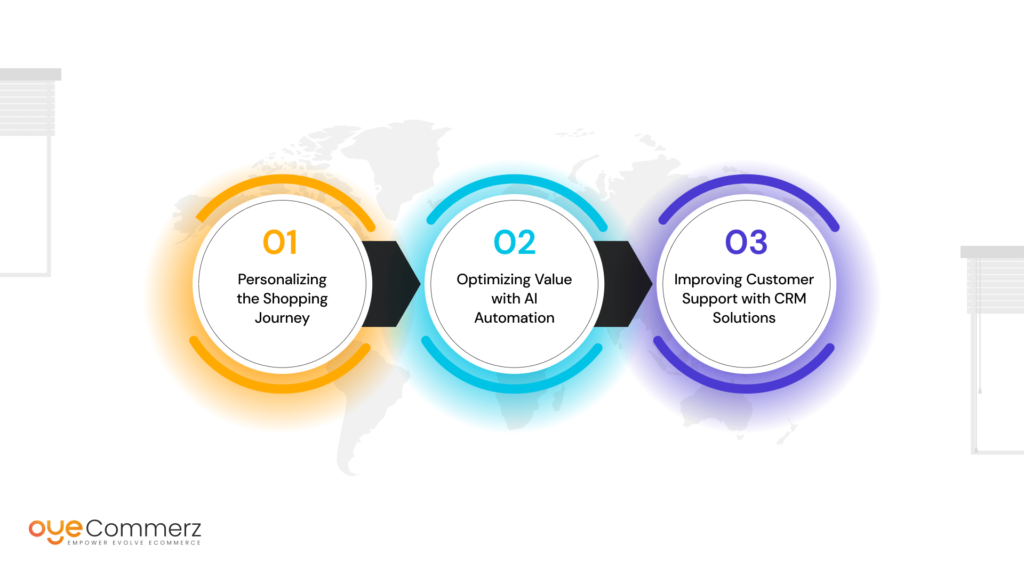
A customized approach to the users is the key focus of the contemporary approaches in eCommerce. Consumers today demand that brands understand their choices, be able to anticipate when they might need something, and suggest what they need. Such integration solutions can be effective in making businesses attain this level of personalization through interactions with data-sources such as customer data platforms, marketing tools, and analytics software.
Personalizing the Shopping Journey
- Personalization is not just limited to something as simple as ensuring that customer emails are responded to with the customers’ names. It is all about using customer data to recommend products or services, promotions, and articles that are relevant to the customers’ needs and actions. Today, there are different Customer Data Platforms, such as Segment or Klaviyo, which collect and analyze consumers’ data to provide companies with tailored offerings.
- For instance, one of your loyal customers who always sends multiple orders of environment-friendly products will be recommended to similar green products whenever they are using your store. Or using integration with the MarTech platforms, such as HubSpot, a Shopify store can send emails with recommended products based on previous purchase history. Such minor but effective changes make the overall shopping experience more appealing and relative to the customer and thus drive subsequent purchases.
Optimizing Value with AI Automation
- AI is a way through which organizations have improved how they deal with their clients or customers. There is an opportunity to enhance buyers’ and sellers’ satisfaction through using artificial intelligence tools in Shopify, for example, chatbots or virtual assistants. Autonomous recommendation systems such as product recommendation systems use the browsing history or the purchasing history of customers to lead them to products they are more likely to make a purchase.
- Also, those chatbots that are connected to Shopify can give quick responses to often-asked questions by customers such as the status of their orders, descriptions of certain products, or return policy. This not only benefits the customer because they do not need to spend time looking for the required information but also saves the customer service department’s time as well.
Improving Customer Support with CRM Solutions
- Consumers prefer instant effective, relevant support whenever they encounter problems or need help. Combining Shopify with other powerful Customer Relationship Management systems such as Salesforce or Hubspot can prove good for businesses since it enables support persons to see the complete customer history. This helps in quicker response to the customers’ inquiries and thus higher levels of customer satisfaction.
- For instance, when a customer engages the support to complain about a delayed order, the support agent can view the details from the CRM hence responding to the issue differently and efficiently without the customer having to repeat it in detail. Such a level of productivity and focus on customers’ needs can tremendously enhance the overall service in shopping.
How Shopify Integrations Prepare You for Business Growth
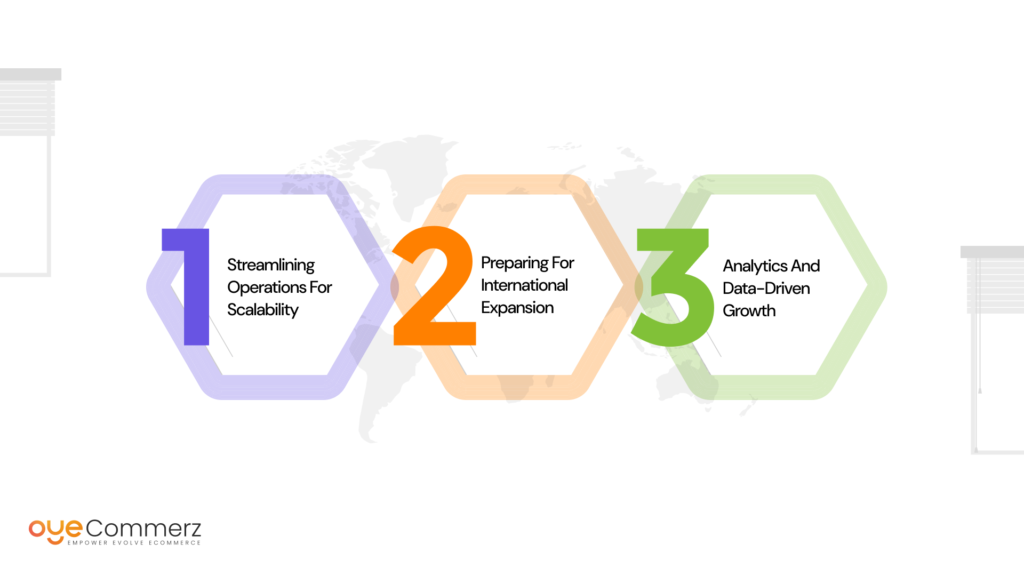
When you grow your business to another level, it becomes a herculean task to manage several systems. Shippo integration solutions enable your enterprise to scale up by eliminating much of the work that needs to be done by hand. These integrations help in case one needs to handle the increased volume of orders or maybe expand to other market segments, as this waits, the quality of services is not compromised.
Streamlining Operations for Scalability
Perhaps the greatest benefit of using Shopify to integrate with third-party systems is that it simplifies many of the operations that become bottlenecks when you have many customers as your business expands. For instance, synchronizing your Shopify store with an ERP solution improves the control of inventory, orders, and delivery. This enables the different businesses to deal with large orders without much interference from people, and the customers can receive their orders on time despite the festive seasons.
Preparing for International Expansion
When expanding into international markets, offering localized payment options becomes crucial. Mastering Shopify Payment Gateway Integration allows businesses to provide customers with secure and familiar payment methods, regardless of their location. Real currency exchange rate tools, language translation apps and systems, and shipping solutions help global customers in their shopping without the problems of language or shipping complications.
Analytics and Data-Driven Growth
One of the key elements in the process of scaling an enterprise is knowing what strategies should be applied and where mistakes were made. The overall advantage of the Shopify platform is its compatibility with Google Analytics or Power BI which lets businesses monitor customers’ activity, sales rates, and operations in real-time. All these inform decision-making and provide a real picture of performance more than assumptions or guesswork hence helping an organization provide the best to the customer.
Improve Customer Experience with Shopify Integration Services
At OyeCommerz, we specialize in connecting your Shopify store with essential tools like CRM, ERP, marketing automation, and more. Our team of experts ensures smooth, customized integrations that enhance personalization, streamline operations, and boost customer satisfaction. Whether you’re looking to reduce cart abandonment, improve order tracking, or scale your business, we’ve got you covered.
Partner with us to unlock the full potential of Shopify and deliver exceptional customer experiences every time. Contact OyeCommerz today to get started!
Maximize efficiency with professional Shopify integration services
Conclusion
In an era where customer experience enhancements are the driving force behind eCommerce success, Shopify integration services offer a powerful way for businesses to meet and exceed customer expectations. By seamlessly connecting Shopify with third-party systems like CRMs, ERPs, and marketing automation tools, businesses can personalize the shopping experience, streamline operations, and prepare for long-term growth. Ultimately, these integrations not only improve the efficiency of internal processes but also create a more enjoyable, engaging, and frictionless experience for customers.

